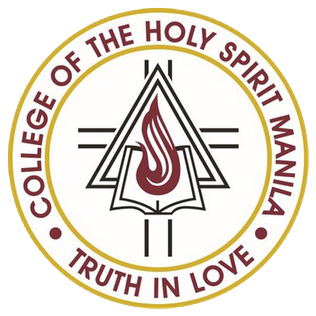Telecommunications in the Philippines are well-developed due to the presence of modern infrastructure facilities. The industry was deregulated in 1995 when President Fidel Ramos signed Republic Act No. 7925. This law opened the sector to more private players and improved the provision of telecom services are better and fairer rates, leading to the creation of many telecommunication service providers for mobile, fixed-line, Internet and other services.

Ayala Corporation is the publicly listed holding company for the diversified interests of the Ayala Group. Founded in the Philippines by Domingo Róxas and Antonio de Ayala during Spanish colonial rule, it is the country's oldest and largest conglomerate. The company has a portfolio of diverse business interests, including investments in retail, education, real estate, banking, telecommunications, water infrastructure, renewable energy, electronics, information technology, automotive, healthcare, management, and business process outsourcing. As of November 2015, it is the country's largest corporation in terms of assets.

Globe Telecom, Inc., commonly shortened as Globe, is a major provider of telecommunications services in the Philippines. The company operates the largest mobile network in the Philippines and one of the largest fixed-line and broadband networks. As of November 2023, Globe has 54.7 million subscribers, making it the second largest network in terms of subscriber base.

San Beda University is a private Catholic coeducational basic and higher education institution run by the Order of Saint Benedict in San Miguel, Manila, Philippines. It was founded by the Benedictines in 1901. The main campus is situated in Mendiola, San Miguel, Manila and provides tertiary education. It has a satellite campus that provides elementary and high school education in Taytay, Rizal.

National University commonly known as NU, colloquially National U, is a private non–sectarian university located in Sampaloc, Manila, Philippines. The founder of the university, Mariano F. Jhocson Sr., established the institution on August 1, 1900, as Colegio Filipino in Quiapo, Manila. It is considered as the first private nonsectarian and coeducational institution in the Philippines and also, the first university to use English as its medium of instruction, replacing Spanish.

Mapúa University, also known simply as Mapúa or MU, is a private research-oriented non-sectarian university located in Metro Manila, Philippines. The university was founded in 1925 by the first registered Filipino architect, Tomás Mapúa, a graduate of Cornell University in New York, US. In 2000, the university was acquired by the Yuchengco Group of Companies.

The Rizal Commercial Banking Corporation, commonly known as RCBC, is one of the largest universal banks in the Philippines with total consolidated resources of Ph₱ 1.2 trillion. It was established in 1960 as a development bank and is licensed by the Bangko Sentral ng Pilipinas (BSP) for both commercial and investment banking. It is currently headquartered at RCBC Plaza in Makati, Metro Manila.

Fernando Miranda Zóbel de Ayala is a Filipino businessman. He served as president (2006–2022) and chief executive officer (2021–2022) of Ayala Corporation.

The Manila Standard is a broadsheet newspaper in the Philippines. As of 2017, it is owned by the Romualdez family. The Romualdezes, through incumbent speaker of the House Martin Romualdez, also own Journal Publications, Inc., the owner of tabloid papers People's Journal and People's Tonight.

The University of Nueva Caceres, also referred to by its acronym UNC, is a private non-sectarian basic and higher education institution in Naga City, Bicol Region, Philippines. It is run by iPeople, Inc.; a joint venture of Ayala Corporation and Yuchengco Group of Companies. It is the oldest and the first university in southern Luzon. Founded by Dr. Jaime Hernandez in 1948, it offers pre-school, elementary, junior high school, senior high school, undergraduate, and graduate programs.

The Malayan High School of Science (MHSS) is a private secondary educational institution established in 2005. It is managed and operated by the Mapúa University (MU). It is on a one-hectare property along P. Guazon Street (formerly Otis St.) in the district of Pandacan, Manila, Philippines.

St. Mary's College Inc., also referred to by its acronym SMCQC or as St. Mary's College, is a private Catholic basic and higher education institution for both boys and girls administered by the Religious of the Virgin Mary in Mother Ignacia Avenue, Quezon City, Philippines. It was established in 1725 by the RVM Sisters.

Assumption College San Lorenzo is a private, Roman Catholic basic and higher education institution exclusively for girls run by the Religious of the Assumption in San Lorenzo Village, Makati, Philippines. It was established by the Assumption Sisters in 1958 and named Assumption Convent. Assumption San Lorenzo is the successor of the closed school named Assumption Convent which was located along Herran Street, Ermita, Manila.

Alfonso Tiaoqui Yuchengco was a Filipino accountant, banker, businessmanpanies, one of the largest family-owned conglomerates in the Philippines.

Mapúa Malayan Colleges Laguna (MMCL), formerly known as Malayan Colleges Laguna (MCL), is a private, research, and nonsectarian college wholly-owned subsidiary of the Mapúa University in Cabuyao, Laguna, Philippines. Opened on June 18, 2006, MMCL's close proximity to the industrial hubs of Laguna provides students easy access to on-the-job training opportunities in one of the most prestigious companies in the country.

The Far Eastern University – Institute of Accounts, Business, and Finance, or simply IABF, is the academic institute offering accountancy and business programs of the Far Eastern University. It is regarded as the oldest institute of the university, established prior to the creation of FEU.

Far Eastern University, also referred to by its acronym FEU, is a private research non-sectarian university in Manila, Philippines. Created by the merger of Far Eastern College and the Institute of Accounts, Business and Finance, FEU became a university in 1934 during the term of its first president, Nicanor Reyes Sr.

The College of the Holy Spirit Manila, or simply CHSM, was a private, Catholic education institution founded and ran by the Missionary Sisters Servants of the Holy Spirit in Manila, Philippines. Founded in 1913, College of the Holy Spirit Manila was established originally as Holy Ghost College through the invitation of then Manila Archbishop Jeremias Harty. Located initially on Legarda Street, the campus later moved along Mendiola Street, inside the Malacañang Palace Complex. It is one of the schools which comprises the Mendiola Consortium (MC) for academic cooperation along with Centro Escolar University Manila, La Consolacion College Manila, San Beda College Manila, and St. Jude Catholic School.

APEC Schools is a chain of private high schools based in the Philippines. It is one of the subsidiary schools of iPeople, the merger of the education businesses of Ayala Corporation and Yuchengco's House of Investments. APEC Schools currently has branches across Metro Manila and Calabarzon regions.

Lorenzo Villanueva Tan is a prominent Filipino banker and former President of the Banker's Association of the Philippines, and Chairman of the Asian Bankers Association. At 37 years old, he became the youngest president of a universal bank in the Philippines.
























